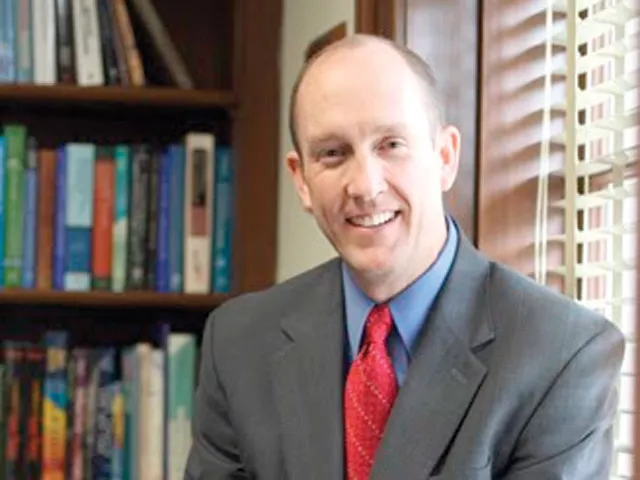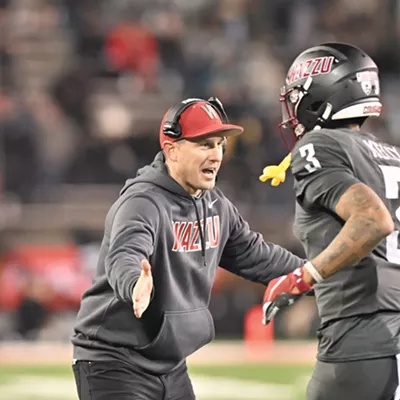Whitworth’s new president has arrived. Say goodbye to Bill “B-Rob” Robinson, and hello to Beck Taylor, an economics guru and dean of the business school at Stamford University in Birmingham, Alabama. Students have already begun referring to him as “B-Tay.”
On Saturday, we sat down with Taylor to find out what sort of college president he would be.
INLANDER: How long do you expect to be president of Whitworth?
TAYLOR: I hope I’m here a long, long time. In all seriousness, it’s important that universities like Whitworth have continuity of leadership.
What do you see your role as specifically?
My biggest role is to be a cheerleader for the university. It’s the president’s job to make sure the university can pull off its mission.
How do you intend to do that?
First and foremost, I need to be involved here on campus. Students are in the center of Whitworth’s mission. Once I understand the pulse of the institution, I can leave Spokane and go to all the parts of the world and tell that story. And it’s a compelling story.
Gonzaga University banned the performance of The Vagina Monologues on campus. Whitworth, however, is performing it for the second year in a row. How should Whitworth respond to controversial events on campus?
I know about that event. I’m familiar with The Vagina Monologues. I know it’s a critical view of the life of women and the specific challenges they face. Whether I would personally agree with all perspectives portrayed in that particular performance doesn’t matter. What’s important is students have the freedom to be able to engage. That was a perfect example of how Whitworth navigates this narrow ridge between conviction of faith and curiosity of intellect… I was glad to hear that the university was able to support that performance.
For over 20 years, Whitworth’s response to homosexuality has been an ongoing debate. What would be your perspective?
I’m glad that Whitworth has a place for students of different sexual orientation and also creates a space for those students to deliberate with the broader Whitworth community. For us as a university to wall off, to raise the proverbial gates to an issue that is so profound to society today — and within the church today — would simply be irresponsible.
How do you view the limits of campus speech?
Again, campus should be a place where we challenge ideas. The academy is the place that upholds the notion that ideas should be heard and vetted. If Whitworth’s campus isn’t about that, we’re failing to do university. The university is the last bastion of truly free thought and dialogue that exists in society.
Anything you think would go too far, where you’d want to shut down a conversation or publication?
I don’t know of any.
How will your presidency differ from Bill Robinson’s?
It would be difficult to measure differences. He and I share many of the same personality traits. But I think we would both admit that the next 10 years is going to look different than the previous 10 years. I see Whitworth changing, and perhaps the president’s role will change. We’ve got to become more cross-disciplinary, less siloed. We’ve got to create an academic culture that’s very nimble.


























